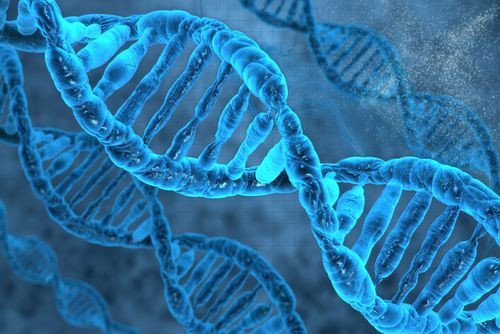A Single Genetic Variation Is Shared By People With Schizophrenia, Autism, And Intellectual Disability

Scientists have long searched for the origins of schizophrenia, and because it runs in families, many theorize it is caused, at least in part, by genes. Some researchers also believe this complex mental disorder may be linked to other illness and disturbances of the brain. Today, a team of scientists presented evidence showing how damage in some of the very same genes contributed to cases of schizophrenia, autism, and intellectual disability (ID). "Our work and that of other researchers, when taken together, is beginning to clarify our view of causation in these very complex, but also very common illnesses," said Dr. W. Richard McCombie, director of the Stanley Institute for Cognitive Genomics at Cold Spring Harbor Laboratory (CSHL).
Scientists believe some cases of schizophrenia are caused by gene mutations passed from parents to children with environmental factors exacerbating the effects of such mutations. Yet researchers also believe some cases of the mental disorder may be caused by de novo genetic mutations (DNMs). DNMs are new defects in genes that occur only in offspring — in such cases, neither parent possesses the same defects as the child. These mutations are simple copying errors caused during mechanical DNA replication. They occur infrequently in every human being during sperm and egg development, but typically they have no overall impact on human health.
However, when de novo mutations occur in a gene or genes indispensable for normal development they have devastating consequences. For this reason, McCombie and his colleagues, in an ongoing collaboration with Dr. Aiden Corvin of Trinity College, Dublin, hypothesized there may some special link between schizophrenia and DNMs.
To conduct their study, McCombie, Corvin, and colleagues concentrated on de novo mutations and then further narrowed their search to the exome; this is a tiny fraction — just three to four percent — of the total human genome sequence. Scientists often use this strategy when looking for genetic variations. "Finding de novo variants in a child compared to their parents is technically relatively simple," said McCombie, who explained that the exome can present scientists with a particularly strong "signal" of potentially significant genetic variation in children who have an illness like schizophrenia.
For the current study, then, the team enlisted the help of 42 “trio” families in which the child, but neither parent, was diagnosed with schizophrenia and/or psychosis. They also enrolled 15 trio families with a history of psychosis. Then they set to work, searching the exomes of all participants for de novo mutations. What did they discover?
Among the 42 affected children in the study, they discovered de novo mutations in three genes: AUTS2, CDH8, and MECP2. (In prior genetic studies, mutations on these very same genes have been identified in people with autism.) Two other mutated genes found in the participants — HUWE1 and TRAPPC9 — have been similarly linked to people with intellectual disability. Of these five "overlapping" genes, three — CHD8, MECP2 and HUWE1 — play a role in what scientists call the epigenetic regulation of transcription. That is, these three genes are involved in a complex molecular process that determines when and which genes are switched on or switched off.
"There's a growing awareness of the importance of epigenetic regulation during brain development, as well as in cognition in the mature brain," said Dr. Shane McCarthy, a CSHL research investigator and lead author of the new study. This regulation is the reason why the team’s discovery is so important — normal brain development depends on these genes. With this study, then, de novo mutations of these genes have been linked to not just schizophrenia but autism and intellectual disability as well.
Source: McCarthy SE, Gillis J, Kramer M, Lihm J, Yoon S, Berstein Y, Mistry M, et al. De novo mutations in schizophrenia implicate chromatin remodeling and support a genetic overlap with autism and intellectual disability. Molecular Psychiatry. 2014.



























